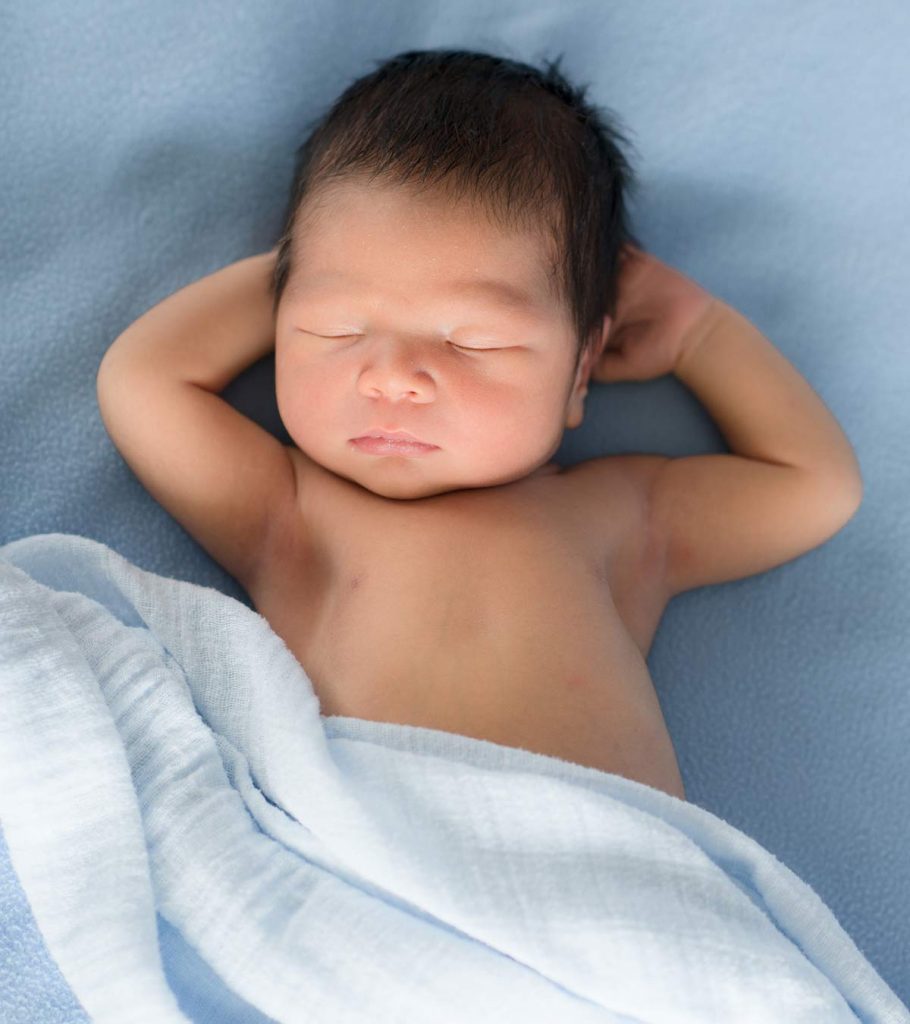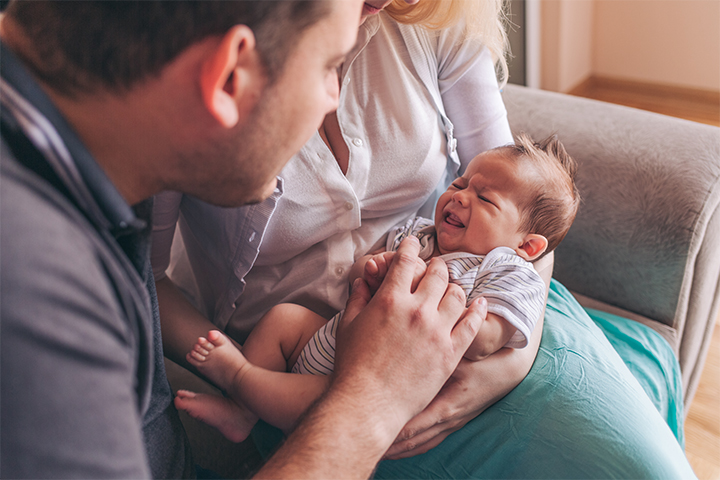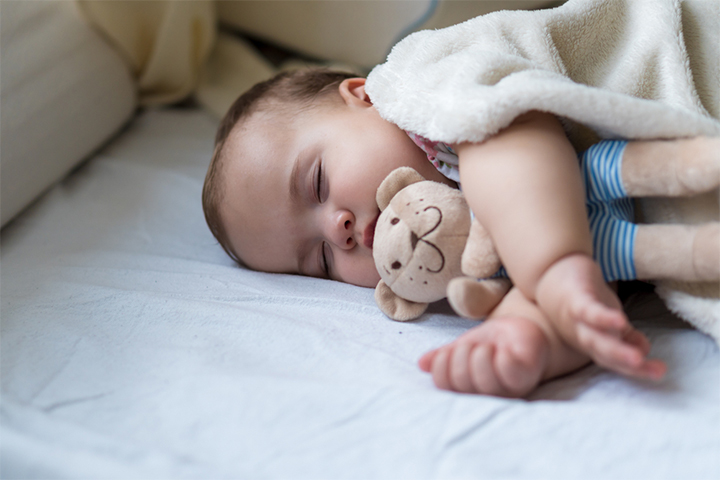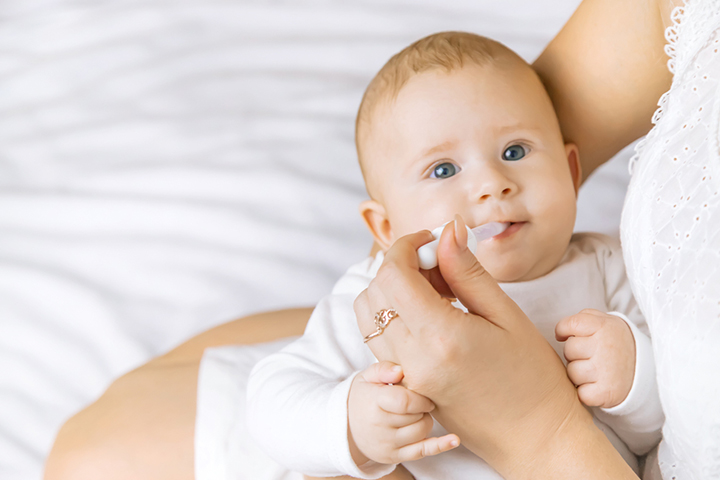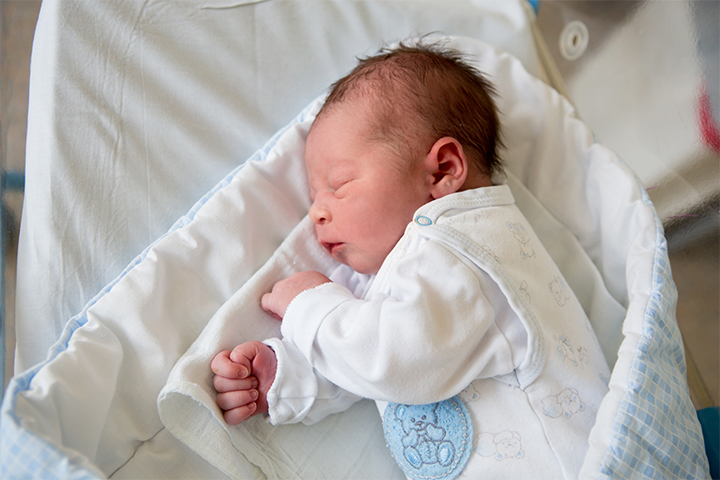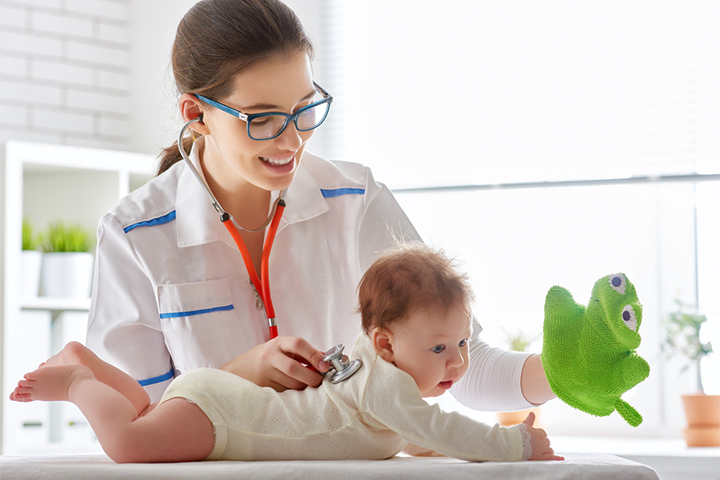Night sweats are defined as drenching sweats that require you to change your bedclothes (1). Excessive sweating in babies can cause restlessness and disrupt their sleep. Although it might worry you to see your baby sweating in sleep, it’s not always a sign of a medical condition.
Read this post to learn about the causes and treatment for babies sweating at night and know when to consult a doctor.
Is Night Sweat In Babies Normal?
Nighttime sweating is not always a cause for concern. Various reasons cause nocturnal sweatingiXExcessive sweating or perspiration during sleep, and not all of them indicate a problem. Consult a pediatrician in the case of sudden onset of heavy sweating that continues for a prolonged period and is accompanied by other symptoms of an illness.
Po-Chang Hsu, MD, MS, a Greater Boston-based medical expert, explains, “Night sweats are typically divided into primary (regular sweating that happens during deep sleep or when it’s warm in the room) and secondary (sweating caused by health issues such as fever).”
Why Do Babies Sweat While Sleeping?
The following are a few reasons that might cause sweating in babies at night.
- Crying: Excess crying can make a baby tired and exhausted, and it might lead to sweating. This type of perspiration usually subsides once the baby stops crying.
- Position: Very young babies cannot move by themselves and might be in the same position for a few hours. In such a scenario, the baby might feel warm and sweat more.
- High room temperature: High room temperature and poor ventilation might cause discomfort to the babies, and they might sweat. Sweating is a natural defense mechanism of the body against overheating. The combination of sweating with red skin might indicate overheating of the body (2).
- Too many layers of clothes: Wearing too many layers of clothes or covering the baby with layers of blankets might cause increased body temperature and subsequent sweating. Getting too hot has been linked with sudden infant death syndrome (SIDSiXAn abbreviation for sudden infant death syndrome, describing the death of a healthy baby during sleep without any apparent reason) or sudden unexpected death in an infant (SUDI) (3). It is suggested to dress the baby according to the weather and not overdress.
- Deep sleep: Babies often sweat in the phase of deep sleep sweat. It is usually not a cause of concern.
- Location of sweat glands: It is common to see sweating on the baby’s head while they are asleep. Unlike adults, babies have most of their sweat glands located on their heads. The sweat glands develop first on the scalp and then the forehead. Sweat glands of palms, soles, and armpits develop later. Hence, babies tend to have droplets of sweat on the forehead and scalp (4).
- Fever: Babies with fever often exhibit sweating at night. They might develop a fever during an episode of cold or infection (5).
- Medicines: Medicines like acetaminophen that are given to babies to reduce the fever, might also cause sweating.
- Infant sleep apnea: Obstructive sleep apneaiXA condition that causes irregular breathing patterns during sleep is seen in one to three percent of children. Symptoms include snoring, difficulty in breathing during sleep, or mouth-breathing during sleep. Sweating is often seen in babies with sleep apnea (6).
- Hyperhidrosis: Hyperhidrosis is a condition characterized by excessive sweating. The exact cause of hyperhidrosis has not been identified, and the condition might be localized to a part of the body (7).
- Congenital heart disease(CHD)iXA range of diseases that affect the normal functioning of the heart: Sweating often increases in babies with CHD, especially those with a higher tendency towards congenital heart failure(CHF) (8). Sweating and excessive crying are one of the first symptoms of babies with CHF (9).
- Hyperthyroidism: Hyperthyroidism is an endocrine disorder where an overactive thyroid gland increases thyroid hormone production in the body. As the thyroid hormone plays a vital role in regulating metabolism and temperature, its overproduction may cause physiological changes, such as increased heart rate and perspiration. Other symptoms that a baby with hypothyroidism may exhibit include irritability, bulging eyes, and sleep disturbances (10). Excessive hormone production in babies can also lead to developmental delays.
Discuss with your doctor if you have any doubts regarding the excess sweating in your baby. Observing the baby’s sweating pattern and making some changes might help in bringing down the amount of sweat.
Tips To Deal With Baby’s Sweating While Sleeping
Bringing a few changes to the baby’s surroundings might help in reducing night sweats in babies.
- Room temperature: It is recommended to keep the room temperature between 68 to 72°F (20 to 22°C). Most baby monitors report the temperature of the room, or you can buy a room thermometer. The baby’s room temperature should feel between warm and cool and not hot.
- Comfortable clothing: Dress the baby in comfortable and season-appropriate clothing. Doctors suggest keeping the baby warm like they would be in the womb. Excessive clothing can quickly overheat the baby. Instead, use moisture-wicking fabrics for their sleepwear and bedding to combat unnecessary wetness and keep the baby dry. It will help maintain the baby’s hygiene and enhance their sleeping comfort. Always choose breathable fabric and comfortable clothing. Ensure you do not swaddle the baby too tightly, since it can cause difficulty with regulating the body temperature.
- Control crying: Excessive crying can cause sweating. Therefore, it is essential to find and fix the problem that is making the baby cry. It might be hunger, a wet diaper, or a bad dream. Soothe the baby and place them back to sleep. Try moving the baby to another spot for sleep, if possible.
- Hydration: Dehydration can also contribute to excessive sweating, as the body tries to regulate its temperature by releasing sweat. So, keep the baby hydrated. It will help compensate for the fluids lost due to sweating.
- Let the baby cool down for a few minutes after their playtime. You may take them out for fresh air or give them a cool bath before putting them to sleep.
If the baby continues to be sweaty, then they might have a fever. Do not hesitate to consult a pediatrician as the first line of management.
When To Consult A Doctor For Baby’s Night Sweating?
Making a few changes might usually resolve the sweating problem in babies. However, you should see a doctor soon if the following signs and symptoms occur.
- Your baby has a body temperature higher than 38°C or 100.4°F (11).
- If they snore, gasp for breath, or take long pauses between breathing while sleeping, it might indicate that he/she has obstructive sleep apnea. They might also exhibit difficulty in feeding and signs of anxiety (6).
- The baby is not gaining weight normally, and especially when sweating happens while the baby tries to feed.
Although sweating is a common phenomenon, keep an eye out for any concerning signs and symptoms. If you notice your baby sweating in sleep, ensure that they are hydrated, dress them in comfortable clothing, and adjust the temperature of the room. However, if they show signs of high fever, have trouble breathing, or are not achieving developmental milestones at the right age, it is advised that you consult the doctor or the pediatrician immediately and seek medical care.
Key Pointers
- Night sweats in babies refer to excessive sweating during sleep that requires a change of bedclothes.
- Causes of night sweats may include crying, high room temperature, and deep sleep, which are often not concerning.
- Medical conditions such as fever, medicines, infant sleep apnea, hyperhidrosis, and congenital heart disease can also cause night sweats in babies.
- Adjusting the room temperature and using comfortable clothing can help reduce night sweats in babies.
- If a baby continues to sweat excessively or experiences sudden heavy sweating, it is important to consult a pediatrician.
My baby sweats a lot when sleeping, but no fever. What could be causing this? What should I do to help? Get answers to these questions and more in this video.
